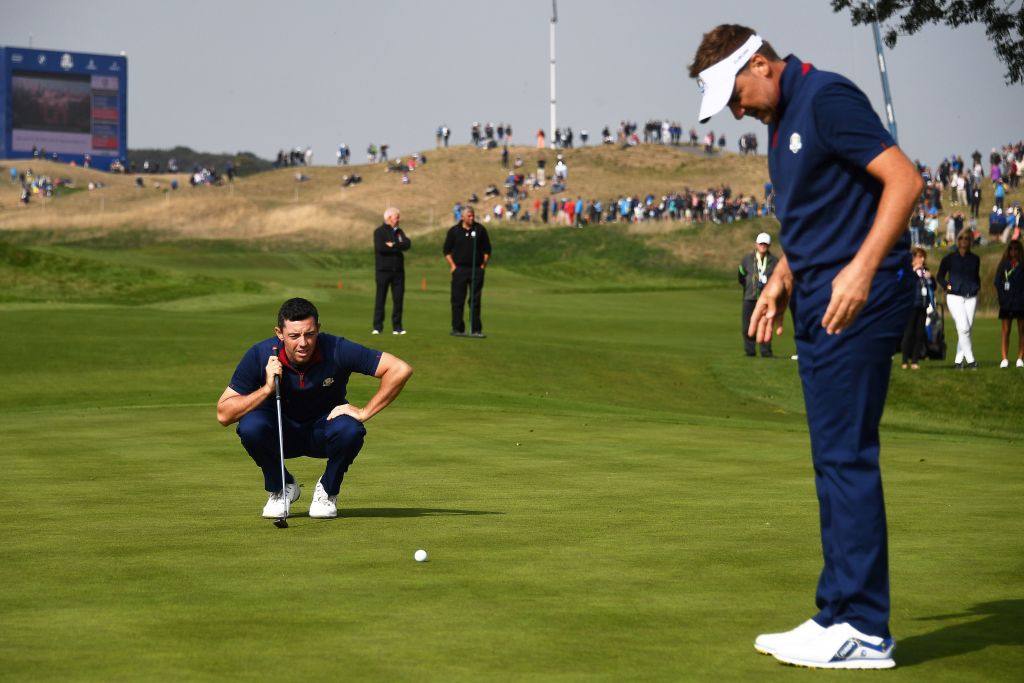Difference Between Fourball and Foursomes
Both formats involve teams of two players, but the main difference between fourballs and foursomes is in the number of balls being played. In foursomes, team-mates share a ball; in fourballs, each of the four players involved plays their own own ball.
Foursomes is also known, particularly in the US, as Alternate Shot. In this format a team of two plays one ball, with one of the players teeing off on the odd-numbered holes, and the other doing so on the even-numbered ones. Throughout each hole the team-mates play alternate shots.
Fourballs is also known as Fourball Better Ball. Both the players on a side play their own ball, and the better nett score of the pair on a the hole counts as the team score for that hole. The fourballs format does not require both players in a team to hole out, as only one score will be counted. (Indeed, technically, it does not even require that both members of a team play a hole, although such a scenario is only likely if a player gets injured during the round or turns up late for the start of it.)
Both formats can be used in strokeplay or matchplay.
In both formats one player can act for the team. In fourballs this means a team-mate can mark his partner’s ball, or lift and clean, or drop it under penalty. (If these are done incorrectly, it is the player whose ball it is who incurs any penalty not the player who performed the action.) Similarly a player and his caddie may also help the other player in the same way that the player’s own caddie would be allowed to do.
In fourballs partners may also play in whichever order the team elects when is one of their members’ turn to play. Thus if Andrew and Benji are a fourball team, and it would normally be Benji’s turn to play as his ball is the furthest from the hole, the team can chose that Andrew plays before Benji, if they so wish.
In foursomes a team’s handicap is 50% of the aggregated course handicaps of the team-mates. In fourballs each player gets 85% of their course handicap. But that aspect the Ryder Cup players don’t have to worry about.
..
Click Here to Read the Full Original Article at Golf Monthly RSS Feed…
